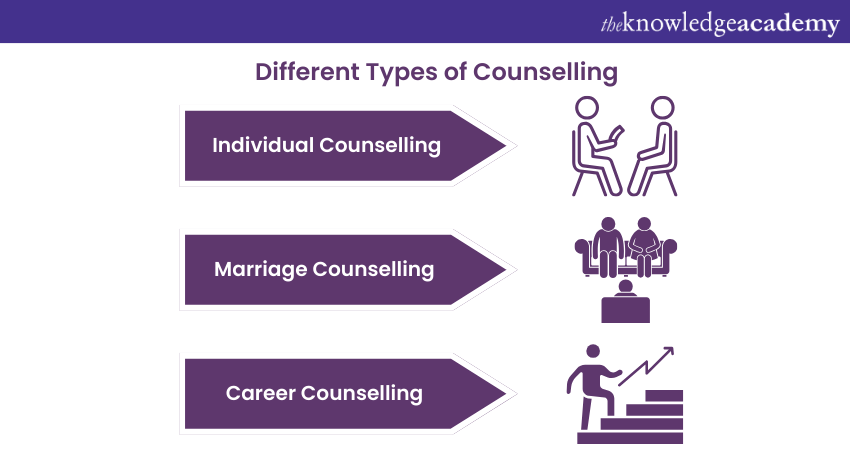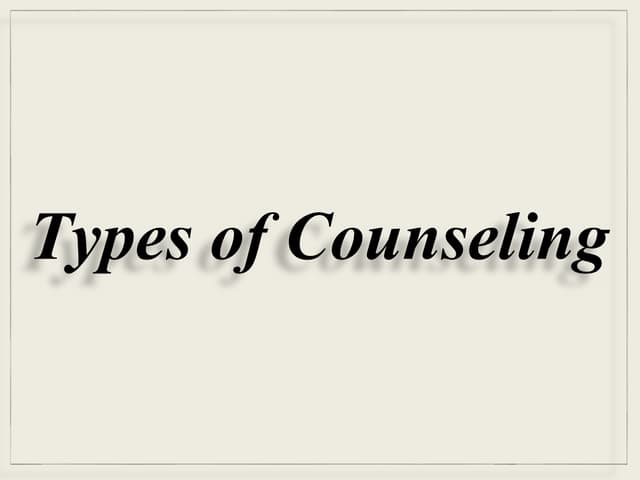adhd counselling: Key Steps for Families
Recognizing the Factors You May Requirement Counselling in Your Life Trip
Many people experience difficulties that disrupt their emotional equilibrium. Life changes, sorrow, and anxiety can produce a sense of bewilder. Counselling acts as a useful resource in these minutes. It supplies a secure room to navigate feelings and create dealing techniques. Yet, the reasons for seeking coaching expand beyond immediate battles. Recognizing these motivations can cause substantial understandings regarding oneself, prompting more exploration right into the intricacies of human experience.
Navigating Life Transitions
As people experience numerous life modifications, such as transforming jobs, relocating to a new city, or experiencing considerable relationship changes, the process can usually feel frustrating. These changes require not just adjustments in day-to-day routines however additionally emotional durability. The uncertainty and stress and anxiety related to such adjustments may bring about feelings of stress and anxiety, confusion, and even seclusion.
Counselling can offer an encouraging atmosphere where people can explore their ideas and sensations associated to these adjustments. A professional can assist them identify coping techniques and clarify their objectives during this duration of change. By fostering self-awareness, therapy motivates people to navigate their new conditions with self-confidence.
Additionally, going over these obstacles with an experienced professional can promote personal growth and improve analytic abilities. Ultimately, effective navigation through life modifications can lead to new opportunities and a deeper understanding of oneself, making the journey both transformative and enhancing.
Coping With Sorrow and Loss
Despair and loss often present a few of life's most challenging experiences, commonly leaving individuals really feeling dizzy and overwhelmed. The psychological turmoil can show up in numerous ways, consisting of sadness, anger, and even regret. Everyone's journey through grief is unique, influenced by their relationship with what was lost and their coping devices.
Counselling can give an encouraging setting where people can process their feelings and experiences. A trained specialist can aid them browse the complicated emotions connected with sorrow, providing techniques to take care of the discomfort and discover meaning. This support can urge people to reveal their emotions honestly, explore their memories, and gradually adjust to life without their enjoyed one.
Eventually, looking for coaching during times of sorrow can cultivate resilience, aiding people to honor their loss while additionally discovering a path towards healing and approval.
Handling Anxiety and Stress And Anxiety
Just how can individuals efficiently take care of the stress and anxiety and stress that usually go along with day-to-day live challenges? Acknowledging the signs is the primary step, as understanding can encourage individuals to take control. Techniques such as mindfulness and deep breathing exercises are advantageous, providing prompt relief by basing individuals in the existing moment. Routine exercise likewise plays an important function in reducing tension, as it releases endorphins that boost mood.
In addition, establishing an organized regimen can foster a sense of security, helping to reduce feelings of bewilder. It is important to prioritize self-care, that includes healthy and balanced eating, sufficient rest, and taking part in pastimes that bring happiness. Looking for professional support with counseling can use customized strategies for dealing with anxiety and stress and anxiety. Inevitably, a combination of self-awareness, useful methods, and specialist guidance can result in reliable administration of anxiousness and stress, permitting individuals to navigate their life trip with greater convenience.

Improving Relationships and Communication
What approaches can individuals employ to boost their relationships and communication abilities? Efficient interaction begins with active listening, where individuals totally engage with the speaker, showing compassion and understanding. This fosters a setting of trust and visibility. Additionally, exercising clear and assertive expression of thoughts and feelings can assist protect against misunderstandings.
Establishing apart specialized time for meaningful discussions can reinforce bonds, allowing people to attach on a deeper degree. Non-verbal signs, such as maintaining eye get in touch with and making use of suitable body movement, more improve interaction.
Solving problems with an emphasis on cooperation instead than confrontation promotes healthier interactions. Individuals can also benefit from seeking feedback from others, enabling them to recognize areas for enhancement. Ultimately, participating in self-reflection and being open to personal development can lead to more fulfilling relationships and enhanced communication skills, leading the way for more powerful links in both individual and professional settings.
Conquering Trauma and Previous Experiences

Why do some people discover it challenging to move previous trauma and past experiences? For several, the emotional and emotional scars left by distressing events can develop barriers to recovery. These experiences may bring about feelings of anxiety, clinical depression, or isolation, usually materializing in unhelpful coping devices. The mind has a tendency to replay traumatic memories, making it tough for individuals to engage totally in their present lives.
Counselling can give a safe room for individuals to face these previous experiences, allowing them to process feelings and acquire viewpoint (low cost therapy). Via restorative strategies, individuals can discover to reframe their narratives, promoting resilience. The journey of recovery typically involves comprehending the influence of trauma on one's life and identifying that the past does not define the future. By seeking assistance, individuals can begin to rebuild their lives, accepting a course towards emotional liberty and personal development
Enhancing Self-worth and Confidence
Enhancing self-esteem and self-confidence is essential for personal growth and wellness. People typically encounter challenges such as unfavorable self-talk, unrealistic assumptions, and an absence of resilience. Resolving these concerns can lead to more positive self-perceptions and higher accomplishments.
Getting Rid Of Adverse Self-Talk
Adverse self-talk can erode an individual's self-esteem and confidence, creating a cycle of self-doubt and limiting beliefs. This damaging inner discussion often comes from past experiences, social stress, or impractical criteria. Identifying these negative patterns is the primary step toward change. Individuals can gain from reframing their thoughts, replacing criticism with constructive feedback, and concentrating on toughness as opposed to weaknesses. Engaging in favorable affirmations and bordering oneself with helpful people can likewise foster a much healthier self-image. Therapy offers tools and approaches to test these dangerous narratives, helping people grow resilience. By addressing adverse self-talk, people can enhance their self-confidence and self-confidence, leading the way for individual growth and an extra favorable outlook on life.
Establishing Sensible Objectives
While pursuing individual growth, individuals usually locate that establishing reasonable goals functions as a vital structure for improving self-confidence and confidence. Possible purposes enable individuals to experience small victories, enhancing their idea in their capabilities. When goals specify and attainable, they develop a clear path for progress, protecting against feelings of bewilder. This clearness fosters a feeling of control and success, vital elements in structure self-worth. Furthermore, fulfilling these goals, regardless of just how small, encourages people to press their boundaries and go after more challenges. As they identify their achievements, a positive responses loophole develops, improving their general self-image. The method of establishing sensible objectives plays a crucial role in supporting self-confidence throughout one's individual trip.
Structure Resilience Skills
Building durability skills is a crucial aspect of personal advancement that enhances the technique of setting sensible objectives. These abilities foster an individual's capability to adjust and thrive in spite of difficulties. Boosted self-worth and self-confidence are crucial components of strength; they encourage people to encounter misfortune with a favorable way of thinking. Involving in tasks that advertise self-reflection, such as journaling or mindfulness, can considerably boost one's self-awareness and self-regard. Furthermore, seeking support from professionals, like therapists, can supply support in getting rid of negative idea patterns. By growing durability, individuals find out to browse problems efficiently, transforming adhd counselling barriers into opportunities for development. Eventually, building strength not only fortifies one's psychological health and wellness but additionally enhances relationships and total life contentment.
Looking For Individual Development and Self-Discovery

Accepting Modification and Development
Adjustment and development often emerge as important elements of an individual's journey in the direction of self-discovery, as they test one to face their beliefs and adjust to brand-new scenarios. Embracing these elements can bring about extensive insights and personal growth. People may locate that their present circumstances no longer straighten with their goals, prompting a need for change. This quest usually demands tipping beyond comfort zones, fostering strength and flexibility. With therapy, individuals can discover their feelings surrounding change, acquiring support in assisting changes. By recognizing and embracing the certainty of change, they can access brand-new capacities and pathways for development. Ultimately, this trip encourages a much deeper understanding of oneself and the globe, leading the way for a more fulfilling life experience.
Checking Out Individual Values
As individuals browse their life trips, exploring personal values ends up being an essential action in seeking individual development and self-discovery. Personal values function as guiding principles that shape decisions, habits, and partnerships. By recognizing what really matters to them, individuals can get quality on their objectives and aspirations. This exploration typically includes self-contemplation, reflection, and sometimes even challenging conversations with oneself or others. Participating in this process can disclose inconsistencies in between one's existing life and their genuine self, prompting needed adjustments. Counselling can facilitate this exploration, supplying a secure space for individuals to articulate their values and face obstacles. Inevitably, recognizing individual worths improves self-awareness, resulting in more satisfying life choices aligned with one's real identification.
Frequently Asked Inquiries
Just how Do I Know if I Required Therapy?
Identifying the requirement for counselling commonly includes recognizing persistent psychological distress, problem managing daily life, or sensation bewildered. Indications may consist of modifications in mood, connections, sleep, or a sense of seclusion. Looking for advice can be valuable.
What Kinds of Therapy Are Readily available?
Numerous kinds of counselling consist of specific, pairs, family members, and team therapy. virtual therapy. Specialized choices like cognitive-behavioral treatment, art therapy, and drug abuse counselling deal with particular demands, enabling people to seek assistance tailored to their situations
Is Counselling Confidential?
Coaching is typically personal, guaranteeing that customers feel safe to share personal experiences. Exemptions exist, such as threats of damage or lawful responsibilities, where a counsellor may need to divulge specific information for safety and security.
For How Long Does Therapy Usually Last?
Counselling duration differs widely, commonly lasting from a few sessions to several months. Aspects affecting this include the certain problems attended to, the therapeutic strategy, and specific progression, forming an one-of-a-kind timeline for every client's trip.
Can I Attend Therapy Online or From Another Location?
Many individuals ask regarding the opportunity of participating in counselling online or from another location. The answer is affirmative; countless therapists use digital sessions, making mental health support much more easily accessible despite geographical area or individual conditions.